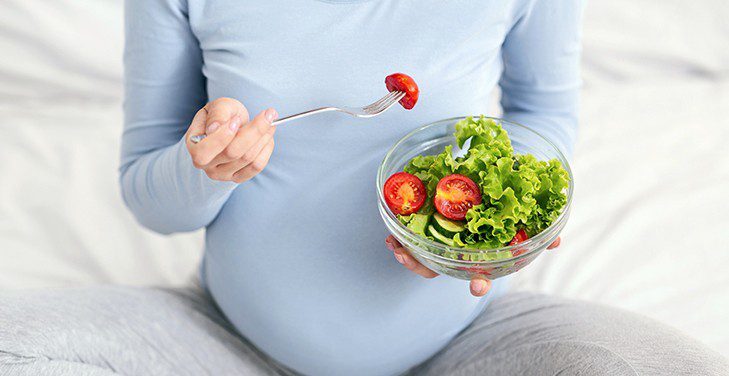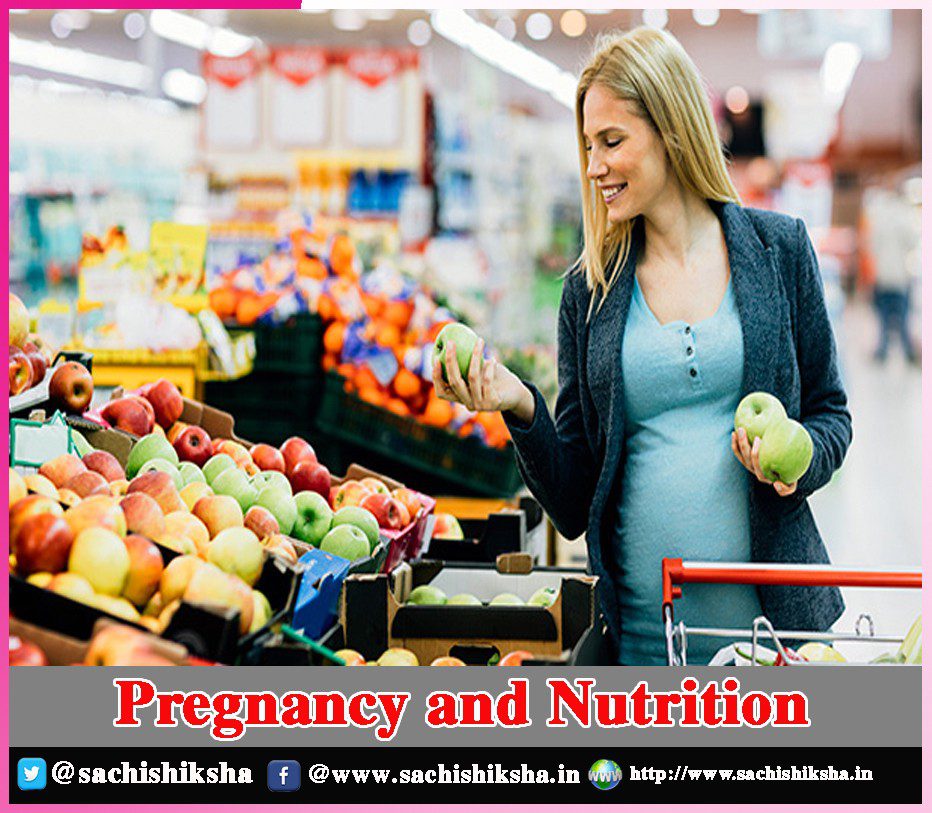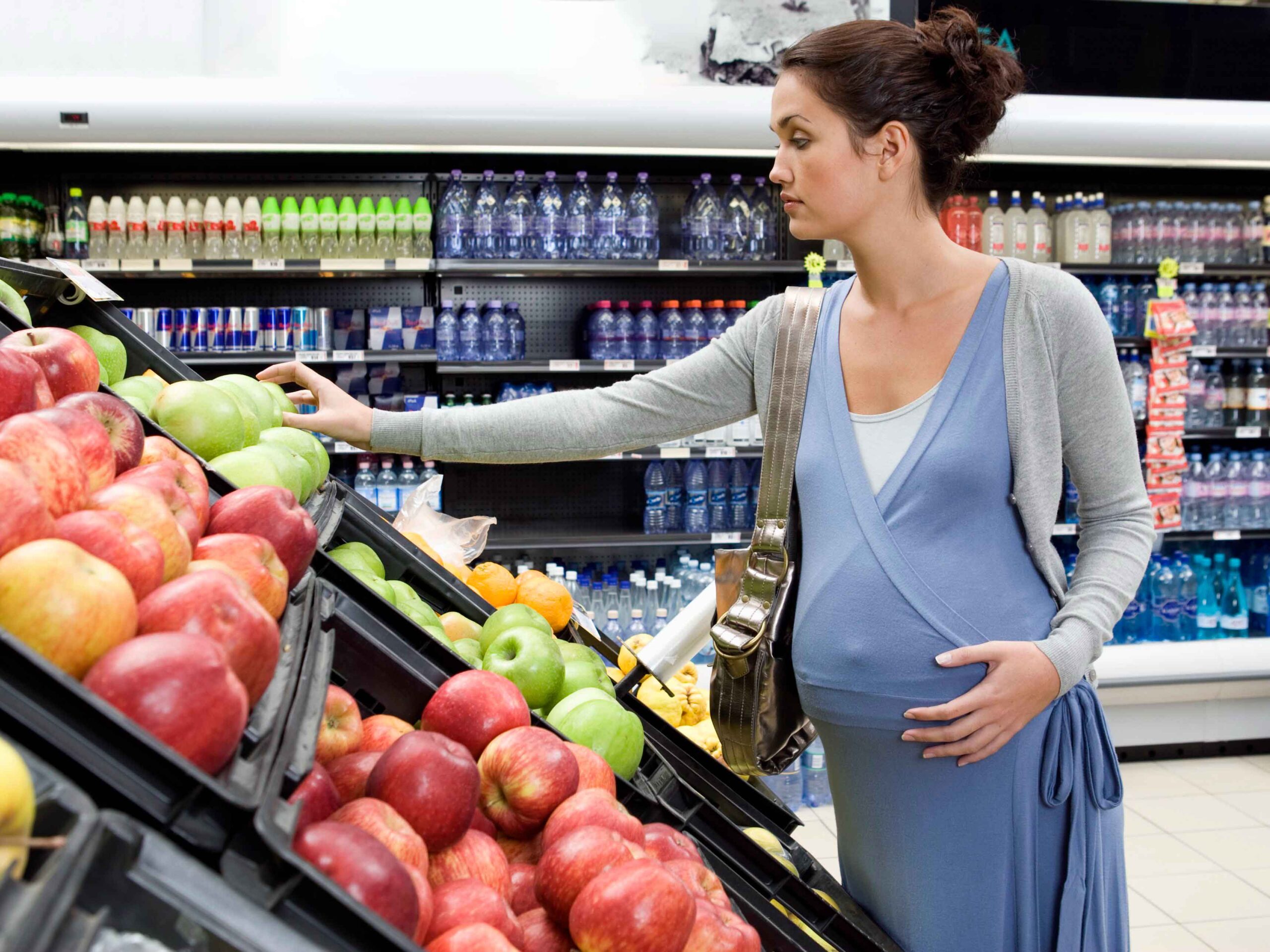Pregnancy and Nutrition
Pregnancy is a time when most women either have a strong craving for certain foods or they do not feel like eating every food that they used to like eating before getting pregnant. Some even crave for junk food while others worry about putting on weight. In most cases, morning sickness interferes with their eating patterns, especially in the initial pregnancy stages.
Many women feel nauseous or ever vomit often, especially during the first three months of pregnancy. This is quite normal, but can be very annoying. There are a few things you can do to reduce the nausea. Try to eat a little amount of meals. Eating in the morning, right after getting up, can settle an uneasy stomach.
Also Read:
- Safe Activities During Pregnancy
- Deal this way with the Diseases During Pregnancy
- PROTEIN- WHAT & WHY A MUST
- Avoid Gaining Weight After Marriage
- Working Mothers and Balance of Life
 Small sips of ginger tea can help with the nausea. And in general, only eat what you feel like eating. You might want to eat only bland food, or have strange cravings that’s all okay. Listening to your body and trying different approaches will be the best way to deal with morning sickness and nausea.
Small sips of ginger tea can help with the nausea. And in general, only eat what you feel like eating. You might want to eat only bland food, or have strange cravings that’s all okay. Listening to your body and trying different approaches will be the best way to deal with morning sickness and nausea.
Just make sure to drink lot of water and fluids, especially if you have been vomiting. If your problems are severe and don’t get better, discuss this with your doctor. Another important point to be kept in mind is that you will need to eat a little more than usual to ensure that the foetus can develop healthily, but there is no need to eat twice as much. If youre not over or under weight, you will need about 300 to 500 kcal more every day in the second and third trimester.
Some women are afraid of putting on weight or think that if they eat less, labour will be easier and they would not have to work hard to get rid of the excess weight. But this can lead to serious complications for the mother as well as the foetus, so one should avoid dieting or starving yourself.
Women should go in for a balanced diet rich in carbohydrates (grains like wheat, ragi, sooji etc, rice in the form of rotis, rice or idli/dosa), proteins (lentils/dals, paneer) and lots of green leafy and fibrous vegetables like paalak, sarson saag, methi or other vegetables like cabbage, capsicum, carrots – depending on the season and availability. One should also eat various seasonal fruits. Eating good amount of fruits and vegetables can help you avoid constipation, which is a common problem for women in pregnancy.
You can cook food in desi ghee, sarson/mustard oil, coconut oil or olive oil. Try to avoid refined oils. Also, use them in moderate quantities. Try not to eat too much fat, sugar and salt during pregnancy. Moderation is the key to be comfortable. Also avoid eating too much processed food like frozen food, pasta, noodles, cornflakes etc. that are packed in a box. Eat freshly prepared, home-cooked food for good health.
For the sweet tooth, eat something that has been cooked at home like rice kheer/payasam, sewaiyan/vermicelli, home-cooked halwa, panjiri with dry fruits or any other sweets cooked at home. Avoid too many chocolates and outside mithai to reduce the chances of your exposure to infection. Once in a while, you can indulge in paani puri, chaat, pizzas etc but do not make it a habit. Eat from a good, hygienic restaurant rather than a road side vendor.
Make sure that you wash your fruits and vegetables well before eating them. If you get sick easily, you might want to stay away from salads and uncooked vegetables. Your raw chicken and poultry should not touch any other food, and you need to wash knifes and plates that have touched raw poultry thoroughly before using them for other food. One should stay away from alcohol, cigarettes and other drugs as they can seriously harm the foetus.
Also avoid eating raw or undercooked eggs, fish, meat, liver, other innards, drinking coffee and other drinks with caffeine. When you drink milk and eat cheese, make sure that it has been pasteurised (heated after milking to kill bacteria). If you have a pet cat, then the mother-to-be should not clean the litter box. Bacteria in the cat poo can make your foetus sick.
Following the doctors approval, pregnant women should start taking a folic acid (folate) supplement. It prevents the foetus from getting an illness called Spina Bifida, which causes parts of the spine in the embryo to close incompletely. Folic acid is very effective, especially if taken very early during pregnancy. Therefore, you should take it once you are pregnant or trying for a baby.
If you cannot access supplements, make sure you eat a lot of leafy green vegetables and avocados. You might want to look into taking special pregnancy vitamins that contain folic acid and other vitamins and minerals you need.
Pregnancy symptoms vary. Some women may have difficulty with morning sickness, diarrhea or constipation.
Table of Contents
 Here are a few suggestions on how to deal with these symptoms:
Here are a few suggestions on how to deal with these symptoms:
- Morning sickness: For morning sickness, try eating crackers or cereals before you get out of bed. Eat small meals more frequently throughout the day. Avoid fatty & fried foods.
- Constipation: Increase your fibre intake by eating high-fibre cereals, fresh fruits and vegetables. Also, drink plenty of water throughout the day.
- Diarrhea: Increase your intake of foods containing pectin and gum fibre to help absorb excess water. Good choices include bananas, white rice, oatmeal and refined wheat bread.
- Heartburn: Eat small, frequent meals throughout the day, eat slowly and chew thoroughly, avoid spicy or rich foods and caffeine. Dont drink a lot of fluids with your meal, drink fluids in between meals. Try not to lie down after eating a meal, and keep your head elevated when lying down.
The Academy of Nutrition and Dietetics recommends the following key components of a healthy lifestyle during pregnancy:
- Appropriate weight gain
- A balanced diet
- Regular exercise
- Appropriate and timely vitamin and mineral supplementation
Nutrition is about eating a healthy and balanced diet, so your body gets the nutrients that it needs. Nutrients are substances in foods that our bodies need so they can function and grow. They include carbohydrates, fats, proteins, vitamins, minerals and water.
During pregnancy, nutrition is more important than ever. You need more of many important nutrients than you did before. Making healthy food choices every day will help you give your baby what he or she needs to develop. It will also help make sure that you and your baby gain the proper amount of weight.





























 Here are a few suggestions on how to deal with these symptoms:
Here are a few suggestions on how to deal with these symptoms:














